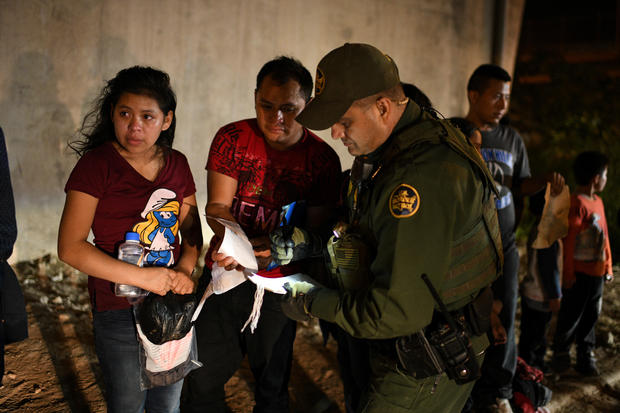The Supreme Court on Wednesday allowed the Trump administration to enforce its most ambitious effort yet to unilaterally make it more difficult for migrants from Central America and other parts of the world to seek asylum at the U.S.-Mexico border.
The high court's decision represents a major legal triumph for the administration, which in recent months has focused on rolling out controversial domestic regulations and seeking multilateral agreements with Latin America countries to curb migration. President Trump, who has long railed against unfavorable court rulings, was quick to praise the order by the conservative-leaning court.
Through the unsigned, one-paragraph decision, the Supreme Court delayed two rulings by a federal judge that had prohibited the administration from fully enforcing a joint regulation by the Homeland Security and Justice Departments. The rule restricts access to the U.S. asylum system for non-Mexican migrants who traveled through Mexico and other countries to reach the southwestern border — but did not seek protection in those nations.
Justices Ruth Bader Ginsburg and Sonia Sotomayor, members of the court's liberal wing, were the only ones to dissent. Sotomayor, the first and only Latina to sit on the Supreme Court bench, criticized the majority's "precipitous action," saying the Trump administration's new rule "topples decades of settled asylum practices and affects some of the most vulnerable people in the Western Hemisphere."
Although designed to stem the flow of Central American migrants journeying north, the regulation also would affect people from other parts of the world trying to reach the U.S. through Mexico, including Cubans, Venezuelans, Brazilians and central Africans, who have traveled to the U.S.-Mexico border in higher numbers this year.
Administration officials have maintained that the rule would help curb what they call "forum shopping" by migrants. They have repeatedly accused migrants of preferring to seek asylum in the U.S., rather than in the countries along their journey that might be able to offer them safe haven.
But immigrant advocates have said the policy ignores U.S. and international refugee law because it would force countless vulnerable migrants and asylum seekers to return to places where they will not be able to find adequate protection.
Lee Gelernt, an attorney for the American Civil Liberties Union (ACLU), which is spearheading one of the legal challenges to the policy, stressed that the Supreme Court's decision is not its final statement on the matter. "This is just a temporary step, and we're hopeful we'll prevail at the end of the day. The lives of thousands of families are at stake," Gelernt wrote in a statement.
The dramatic change to the American asylum system had been announced earlier in the summer but was fully or partly blocked several times before Wednesday. In late July, Judge Jon Tigar of the U.S. District Court for the Northern District of California issued an injunction blocking the policy nationwide. But in August, the 9th Circuit Court of Appeals weighed in and limited the scope of Tigar's injunction, allowing the administration to implement the rule in New Mexico and Texas, but not in California and Arizona, two border states within the 9th Circuit's jurisdiction.
On Monday, Tigar restored a nationwide injunction, prohibiting officials from implementing the policy anywhere along the border. Later this week, however, the Ninth Circuit blocked Tigar's second injunction and said its previous decision stood, meaning that the administration could once again implement the policy in New Mexico and Texas.
Through its ruling on Wednesday, the Supreme Court delayed both of Tigar's injunctions while the legal challenge to the policy continues in court. Although not a final decision, the high court's order will allow the administration to carry out the policy for the time being.
The Justice Department lauded the high court's intervention. "This action will assist the Administration in its objectives to bring order to the crisis at the southern border, close loopholes in our immigration system, and discourage frivolous claims," the agency said in a statement.
2019-09-12 01:54:00Z
https://www.cbsnews.com/news/trump-asylum-ban-supreme-court-rules-administration-can-enforce-controversial-immigration-regulation-2019-09-11/
Read Next >>>>
Bagikan Berita Ini















0 Response to "Trump asylum ban: Supreme Court rules administration can enforce controversial immigration regulation at the U.S.-Mexico border - CBS News"
Post a Comment